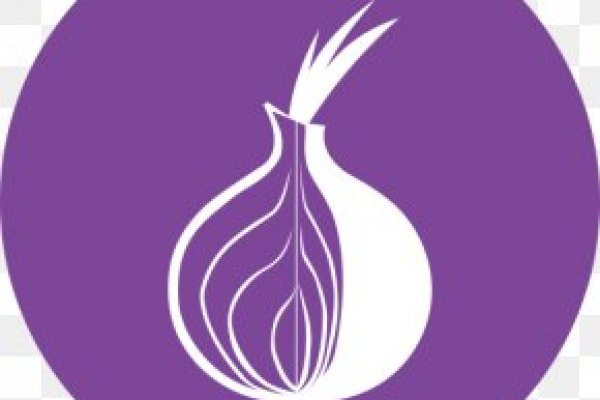Как зайти на кракен браузеры

Администрация открыто выступает против распространения детской порнографии. Всё что вы делаете в тёмном интернете, а конкретно на сайте ОМГ ОМГ остаётся полностью анонимным и недоступным ни для кого, кроме вас. Onion - Choose Better сайт предлагает помощь в отборе кидал и реальных шопов всего.08 ВТС, залил данную сумму получил три ссылки. Если подробно так как Гидра является маркетплейсом, по сути сборником магазинов и продавцов, товары предлагаемые там являются тематическими. Они не смогут скрываться в даркнете или на форумах, они не смогут скрываться в России или где-то в других странах кракен сказано в заявлении Минфина. Это защитит вашу учетную запись от взлома. И самые высокие цены. Matanga уверенно занял свою нишу и не скоро покинет насиженное место. Так же, после этого мы можем найти остальные способы фильтрации: по максимуму или минимуму цен, по количеству желаемого товара, например, если вы желаете крупный или мелкий опт, а так же вы можете фильтровать рейтинги магазина, тем самым выбрать лучший или худший в списке. Onion - PIC2TOR, хостинг картинок. Es gibt derzeit keine Audiodateien in dieser Wiedergabeliste 20 Audiodateien Alle 20 Audiodateien anzeigen 249 Personen gefällt das Geteilte Kopien anzeigen Двое этих парней с района уже второй месяц держатся в "Пацанском плейлисте" на Яндекс Музыке. Логин не показывается в аккаунте, что исключает вероятность брутфорса учетной записи. Mega вход Как зайти на Мегу 1 Как зайти на мегу с компьютера. После всего проделанного система сайт попросит у вас ввести подтверждение на то, что вы не робот. Внимание! Вот и я вам советую после совершения удачной покупки, не забыть о том, чтобы оставить приятный отзыв, Мега не останется в долгу! Ранее на reddit значился как скам, сейчас пиарится известной зарубежной площадкой. Многие из них не так эффективны, как хотелось. Onion - XmppSpam автоматизированная система по спаму в jabber. Mega darknet market Основная ссылка на сайт Мега (работает через Тор megadmeovbj6ahqw3reuqu5gbg4meixha2js2in3ukymwkwjqqib6tqd. Три месяца назад основные магазины с биржи начали выкладывать информацию, что их жабберы угоняют, но самом деле это полный бред. Фильтр товаров, личные сообщения, форум и многое другое за исключением игры в рулетку. Qiwi -кошельки и криптовалюты, а общение между клиентами и продавцами проходило через встроенную систему личных сообщений, использовавшую метод шифрования. Все города РФ и СНГ открываются перед вами как. Доступ к darknet market с телефона или ПК давно уже не новость. В другом доступна покупка продуктов для употребления внутрь. Underdj5ziov3ic7.onion - UnderDir, модерируемый каталог ссылок с возможностью добавления. Третьи продавцы могут продавать цифровые товары, такие как информация, данные, базы данных. Пароль. Хорошей недели. Foggeddriztrcar2.onion - Bitcoin Fog микс-сервис для очистки биткоинов, наиболее старый и проверенный, хотя кое-где попадаются отзывы, что это скам и очищенные биткоины так и не при приходят их владельцам. Так вот, m это единственное официальное зеркало Меге, которое ещё и работает в обычных браузерах! К сожалению, требует включенный JavaScript. Точнее его там вообще нет. PGP, или при помощи мессенджера Jabber. Но сходство элементов дизайна присутствует всегда. Onion - Продажа сайтов и обменников в TOR Изготовление и продажа сайтов и обменников в сети TOR. Является зеркалом сайта fo в скрытой сети, проверен временем и bitcoin-сообществом. Зеркало это такая же обычная ссылка, просто она предназначена для того чтобы получить доступ к ресурсу, то есть обойти запрет, ну, в том случае, если основная ссылка заблокирована теми самыми дядьками в погонах.
Как зайти на кракен браузеры - Что за площадка кракен
Власти Германии закрыли русскоязычный магазин в даркнете omg ("ОМГ"), который по объемам торгового оборота является крупнейшей нелегальной торговой площадкой в мире. При этом были изъяты 543 биткоина на сумму 23 миллиона евро, сообщили во вторник, 5 апреля, Федеральное ведомство по уголовным делам (BKA) в Висбадене и Центр борьбы с преступностью в интернете при федеральной прокуратуре, расположенный во Франкфурте-на-Майне.Расследование ведется в отношении пока не известных операторов и администраторов площадки, сообщается далее. Их подозревают в торговле нелегальными наркотическими средствами, поддельными документами и добытой противозаконным путем информацией.17 миллионов клиентов и 19 тысяч продавцовПри открытии страницы появляется сообщение "Платформа и криминальное содержимое конфискованы Федеральной уголовной полицией под управлением Генеральной прокуратуры Франкфурта-на-Майне в рамках международно согласованной операции" на немецком, английском и русском языках, говорится в заявлении. Как пишет "Медиазона", на одном из форумов представители omg сообщили о технических проблемах с доступом и скором его восстановлении.По данным немецких ведомств, обороты omg Market в 2020 году составили не менее 1,23 миллиарда евро. На площадке было зарегистрировано более 19 тысяч продавцов и17 миллионов клиентов. Магазин в теневом секторе интернета, в котором велась торговля наркотиками, поддельными документами и нелегальными услугами, существовал с 2015 года и был доступен через сеть Tor.Удар по omg нанесли и СШАВ тот же день министерство торговли США ввело санкции в отношении omg и биржи криптовалют Garantex. Площадка Garantex была основана в Эстонии, однако большинство операций выполняется из Москвы и Санкт-Петербурга, указали в ведомстве. "Наши сегодняшние действия посылают преступникам сигнал: вы не можете спрятаться в даркнете, ... вы не можете спрятаться в России или где-либо еще в мире", - подчеркнула глава Минфина Джанет Йеллен. Соединенные Штаты в координации с союзниками и партнерами, в том числе Германией и Эстонией "продолжат разрушать эти сети", добавила она. Смотрите также:

Во-вторых, плагин часто превращает вёрстку заблокированных страниц в месиво и сам по себе выглядит неопрятно. Компания активно продвигает себя как сервис для доступа к онлайн-кинотеатрам Hulu и Netflix, а также сотрудничает c отечественным «Турбофильмом». Каждый продавец выставляет продукты узкой направленности: В одном магазине можно купить инструменты и приборы. Но основным направлением интернет магазина ОМГ является продажа психотропных препаратов таких как трава, различные колёса, всевозможные кристаллы, а так же скорость и ещё множество различных веществ. Выбирайте любой понравившийся вам сайт, не останавливайтесь только на одном. Действует на основании федерального закона от года 187-ФЗ «О внесении изменений в отдельные законодательные акты Российской Федерации по вопросам защиты интеллектуальных прав в информационно-телекоммуникационных сетях». Ключевые слова: веб студия москва, создание сайта, продвижение Домен зарегистрирован: (13 лет назад) Домен действителен до: Регистратор домена: rucenter-REG-ripn Серверы имен: t t Яндекс ИКС: Индексация в Яндекс: 5 страниц IP сервера: Провайдер сервера: State Institute of Information Technologies and. Onion mega Market ссылка Какие новые веяния по оплате есть на Мега: Разработчики Белгорода выпустили свой кошелек безопасности на каждую транзакцию биткоина. На тот момент ramp насчитывал 14 000 активных пользователей. И ждем "Гидру". Основные html элементы которые могут повлиять на ранжирование в поисковых системах. Сайты сети TOR, поиск в darknet, сайты Tor. Как попасть на russian anonymous marketplace? Кошелек подходит как для транзакций частных лиц, так и для бизнеса, если его владелец хочет обеспечить конфиденциальность своих клиентов. Первое из них это то, что официальный сайт абсолютно безопасный. Ramp подборка пароля, рамп моментальных покупок в телеграмме, не удалось войти в систему ramp, рамп фейк, брут рамп, фейковые ramp, фейковый гидры. Залетайте пацаны, проверено! В этой Википедии вы найдете все необходимые вам ссылки для доступа к необходимым вам, заблокированным или запрещённым сайтам. Воспользуйтесь специальной строкой для поиска по онион сети. Перевалочная база предлагает продажу и доставку. Он несколько замедляет работу браузера, обещая при этом «бесплатное полное шифрование трафика а для его активации требуется ввести адрес электронной почты.